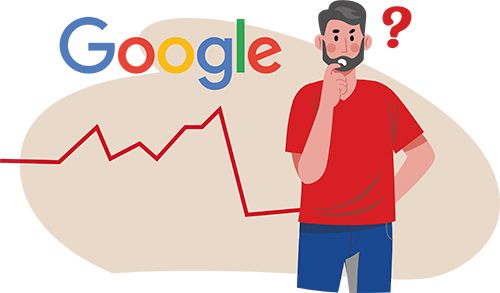
The Real Struggle Behind DIY Websites: A Designer’s Perspective
As a web designer, I’ve worked with many small businesses trying to navigate the world of websites and SEO on their own. What I’ve noticed is that there’s a lot of frustration and confusion out there. It’s not that people don’t care about their websites, but the advice they follow—and how they apply it—can often lead them astray. This blog is based on my personal experiences and observations of the mentality of the people I’ve worked with.
Why ‘Build Your Own Website’ Rarely Works
There’s a huge push these days for small businesses to “build their own website” or manage their own SEO, and while the intention is good, the results are often disappointing. From what I’ve seen, these DIY solutions don’t take into account all the important elements that go into a successful website—UX, design, security, SEO, and so much more.
I’ve worked with clients who have tried to go it alone, and they often come to me after things have gone wrong. The site doesn’t perform, it doesn’t convert visitors into customers, and worse, it can get into such a mess that it no longer works properly at all. The reality is, we can give all the advice in the world, but we can’t advise on everything. In many cases, it becomes easier to step in and do the work ourselves to ensure everything runs smoothly.
The Mixed Messages: SEO Advice and DIY Solutions
I’ve seen small businesses struggle with SEO, not because they don’t care, but because they’re caught between conflicting advice. On one side, they’re told to focus on SEO to rank higher, and on the other side, they’re sold the idea that a DIY website builder will solve all their problems.
From my experience, this creates a sense of panic—trying to follow advice that may not be fully understood or applicable to their business. I’ve seen people focus so much on pleasing Google that they forget about their users entirely, believing they’re doing the right thing because “the experts said so.”
A Balanced Approach: What Small Businesses Can Do
Navigating the complexities of web design and SEO can be overwhelming, especially with so much conflicting advice out there. While there’s no one-size-fits-all answer, I’ve found that small businesses can benefit from focusing on a few key areas:
- Put Yourself in Their Shoes: The most important thing to remember is that your website isn’t about you—it’s about your users. Let’s face it, users don’t care about your business; they care about solving their problems. Your website needs to reflect that by providing clear information, intuitive navigation, and a user-friendly experience that addresses their needs.
- Don’t Overload on SEO Tactics: While ranking on Google is important, it’s equally crucial to avoid overloading your site with SEO tricks that may compromise user experience. Strive for balance.
- Consider Professional Input When Needed: Sometimes, getting a bit of guidance from an experienced designer can prevent issues down the road. It doesn’t have to be an all-or-nothing approach—sometimes small tweaks can make a big difference.
Conclusion: A Thoughtful Approach
For me, it’s not just about following trends or ticking off SEO boxes. It’s about finding the balance between creating something that truly represents a business and connecting with its audience, while also performing well. It’s a challenge that many small businesses face, especially in a digital world filled with mixed messages. In the end, I believe that thoughtful design and empathy for the user can make all the difference.
Struggling with your DIY WordPress website?
While DIY can be tough, it doesn’t have to be a struggle. If you’ve built your WordPress site but need help fine-tuning it, our DIY Site Improvement Hub is here to guide you. From optimisation to security and SEO, we provide expert support to help your DIY site thrive.




